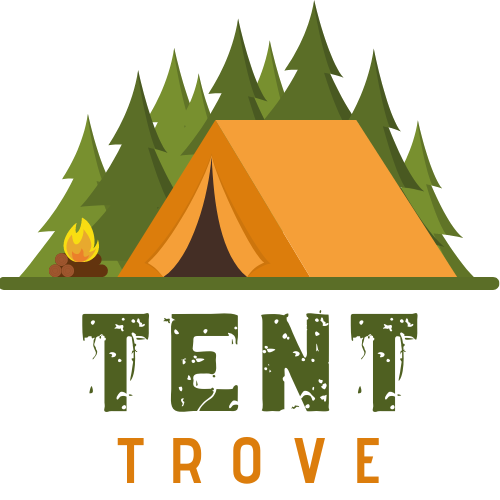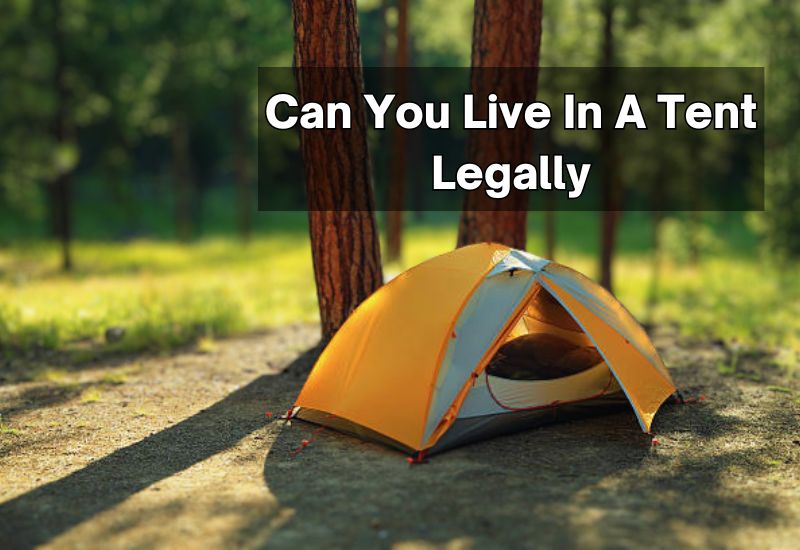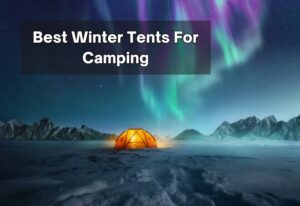Living in a tent legally can be a complex issue, influenced by local regulations, zoning laws, and property rights. While it may seem like an adventurous and cost-effective solution, it’s crucial to understand the legal implications.
Can You Live In A Tent Legally? Living in a tent legally depends on local laws and regulations. Some areas allow it on private property, while public lands may have restrictions. Always check with local authorities to ensure compliance with zoning laws and property rights to avoid legal issues.
This article explores whether living in a tent is permitted by law and what you need to consider before making such a decision.
Legal Considerations for Tent Living
Living in a tent can be an exciting adventure, but it’s essential to understand the legal aspects to avoid potential troubles.
Let’s dive into some key considerations for ensuring a safe and legal tent-living experience.
Research Local Laws:
- Different Regions, Different Rules: Each region has its own set of laws regarding tent living. It’s crucial to understand these before setting up camp.
- Urban vs. Rural: Regulations often differ between urban and rural areas, with cities typically having stricter rules.
Obtain Necessary Permits:
- Permits May Be Required: In some areas, you must obtain a permit to live in a tent. This ensures that you’re complying with local regulations.
- Permit Types: The type of permit you need can vary, ranging from temporary camping permits to long-term residency permits.
Stay Informed on Property Rights:
Ensuring you have permission to camp on the land is vital. Unauthorized camping can lead to legal issues.
- Public vs. Private Land: Always verify whether the land is public or privately owned. Camping on private property without permission is illegal.
- Special Regulations: Some public lands have specific regulations, such as designated camping areas or time limits.
Health and Safety Regulations:
- Sanitation Requirements: Many areas have health regulations concerning sanitation. Ensure you have access to clean water and proper waste disposal methods.
- Fire Safety: Adhere to fire safety rules, especially in areas prone to wildfires.
Zoning Laws and Restrictions:
Understanding zoning laws can prevent legal issues. Some areas may have zoning restrictions that prohibit or limit tent living.
- Residential vs. Non-Residential Zones: Check if the area you’re considering is zoned for residential use.
- Temporary vs. Permanent Structures: Some places allow tents only as temporary structures, not for permanent living.
Environmental Considerations:
Respecting the environment is not only ethical but also a legal requirement in many places.
- Leave No Trace: Follow the “Leave No Trace” principles to minimize your impact on the environment.
- Protected Areas: Be aware of protected areas where camping might be restricted to preserve wildlife and natural resources.
Tent Living Regulations and Permits
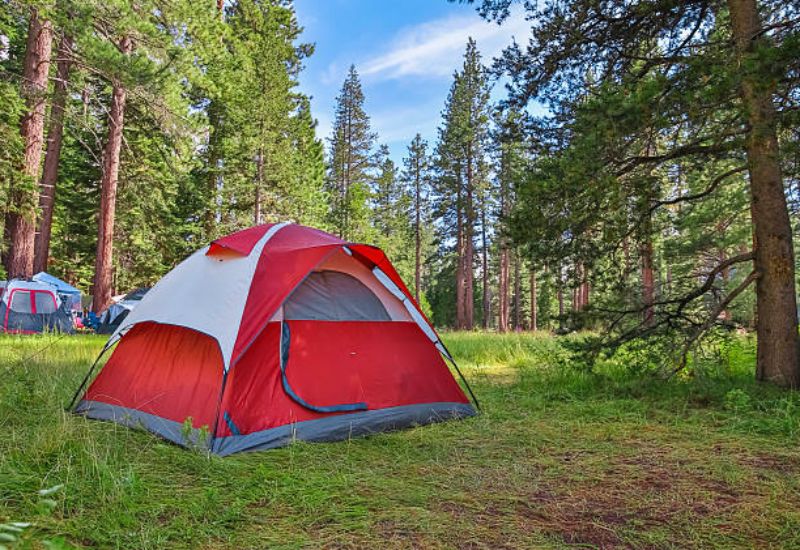
Tent living regulations vary widely depending on the location. It’s essential to be informed about these regulations to ensure you are living legally and safely.
This guide will help you navigate the key aspects of tent living regulations.
Check Zoning Laws:
Zoning laws are crucial when it comes to tent living. Here’s what you need to know:
- Zoning Restrictions: Some areas prohibit tent living entirely, while others allow it in designated zones.
- Local Ordinances: Always check with local authorities to understand the specific regulations in your area.
Apply for Permits:
Obtaining the necessary permits is a critical step in legal tent living. Here’s how to go about it:
- Contact Local Authorities: Reach out to your local city or county office to inquire about permit requirements.
- Submit Applications: Fill out and submit any necessary forms. Be prepared to provide details about your living situation.
- Pay Fees: Some permits may require a fee. Ensure you budget for this expense.
Understand Restrictions:
Understanding the restrictions on tent living helps in compliance with local laws. Here are some common restrictions:
- Time Limits: Some areas allow tent living only for a limited duration, such as a few weeks or months.
- Seasonal Restrictions: Certain regions may prohibit tent living during extreme weather seasons to ensure safety.
Seasonal Considerations:
Living in a tent during different seasons requires special considerations:
- Winter Precautions: Ensure your tent is well-insulated and that you have adequate heating.
- Summer Safety: Stay hydrated and protect yourself from heatstroke by choosing shaded areas and using cooling systems.
Environmental Impact:
Being mindful of your environmental impact is essential when living in a tent:
- Waste Management: Properly dispose of waste to avoid attracting wildlife and contaminating the environment.
- Leave No Trace: Follow the “leave no trace” principles to minimize your footprint and preserve nature.
- Sustainable Practices: Use eco-friendly products and practices to reduce your environmental impact.
Legal Compliance:
Ensuring legal compliance is crucial for a hassle-free tent living experience:
- Regular Inspections: Some areas may require periodic inspections of your tent living setup.
- Health and Safety Standards: Adhere to local health and safety standards to avoid fines and penalties.
- Stay Informed: Keep up-to-date with any changes in regulations that might affect your living situation.
Safe Locations for Tent Living
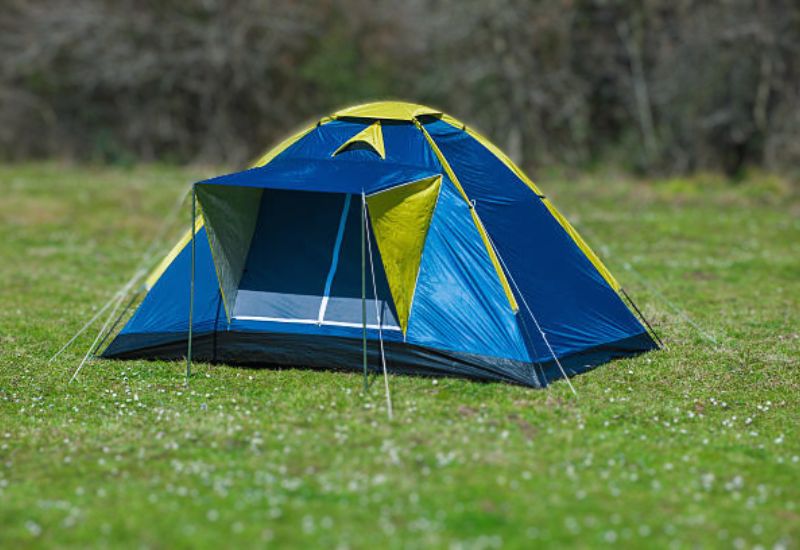
Choosing public land for tent living can be a great option if you follow the rules. Public lands like national forests and Bureau of Land Management (BLM) lands are often open for camping.
Always check local regulations and obtain any necessary permits before setting up your tent.
Securing Permission for Private Land;
Living on private land requires permission from the landowner. It’s crucial to have written consent to avoid any legal issues. Private land can offer more security and access to amenities compared to public land.
Considering Environmental Factors:
- Weather Conditions: Check the weather patterns of your chosen location. Avoid areas prone to extreme weather, such as heavy rain or high winds.
- Natural Hazards: Be aware of potential natural hazards like flooding, landslides, and wildlife. Choose a spot that minimizes these risks to ensure your safety.
Access to Essential Resources:
Having easy access to resources is vital for tent living. Choose a location near water sources, food supplies, and emergency services.
Proximity to these resources can significantly enhance your living experience and ensure your well-being.
Top Legal Considerations:
- Zoning Laws: Research the zoning laws of the area. Some regions have strict regulations on where you can camp.
- Permit Requirements: Determine if you need a camping permit. Some areas may require you to obtain one to camp legally.
Choosing a Safe Campsite:
- Proximity to Civilization: While seclusion is appealing, being too far from civilization can be risky. Find a balance that allows for privacy without compromising safety.
- Emergency Services: Ensure you are within a reasonable distance from emergency services. In case of any urgent situations, quick access to help is crucial.
Challenges of Living in Tents
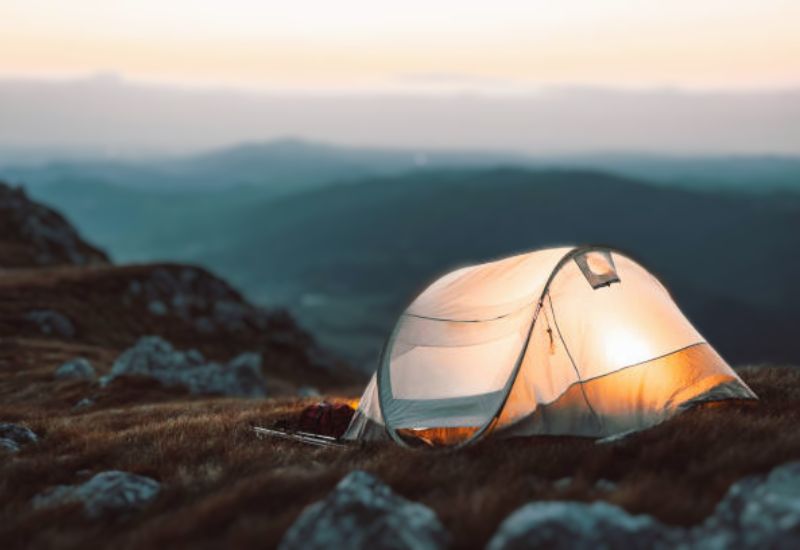
Weather Conditions: Expect the Unexpected
- Extreme Weather: Weather can be unpredictable. You might experience heavy rain, strong winds, or even snow, depending on where you are camping. It’s important to have a tent that can withstand harsh weather and to bring appropriate clothing and gear.
- Seasonal Changes: Different seasons bring different challenges. In summer, you may struggle with heat and insects, while winter camping requires insulation and warm clothing to prevent hypothermia.
Safety Concerns: Staying Secure
Wildlife:
- Wild Animals: Depending on your location, you might encounter animals like bears, snakes, or even insects that could pose a threat. Keeping food stored securely and being aware of your surroundings can help mitigate these risks.
- Insect Bites: Insects can be more than just a nuisance. They can carry diseases, so using insect repellent and mosquito nets is crucial.
Theft and Personal Security:
- Theft Protection: Keeping your belongings safe can be a challenge. Always lock your tent when you are away and keep valuables hidden.
- Personal Safety: Choose a camping spot that feels safe, and avoid isolated areas if you are alone. It’s always better to camp in groups if possible.
Lack of Amenities: Adjusting to Basic Living
No Electricity:
- Lighting: Without electricity, you’ll need alternative light sources like lanterns or battery-powered lights. Solar-powered options are also a good choice.
- Charging Devices: Portable chargers or solar-powered chargers can help keep your devices operational.
Plumbing and Hygiene:
- No Running Water: You’ll need to find ways to access clean water for drinking, cooking, and cleaning. Water purification tablets or portable filters are essential.
- Hygiene: Maintaining personal hygiene can be tricky. Portable showers and biodegradable soaps are useful for staying clean.
Mental and Physical Health:
Physical Health:
- Injuries: Living in a tent increases the risk of minor injuries like cuts or bruises. Always have a first aid kit on hand.
- Fitness: Staying active is important. Engage in activities like hiking or swimming to keep fit.
Mental Well-being:
- Loneliness: Tent living can be isolating. Regular communication with family and friends can help combat feelings of loneliness.
- Stress: The lack of modern comforts can be stressful. Mindfulness practices and relaxation techniques can help maintain mental balance.
Food and Cooking:
Meal Preparation:
- Cooking: Without a kitchen, meal preparation requires some creativity. Portable stoves and camping cookware can make cooking easier.
- Food Storage: Keeping food fresh can be a challenge. Coolers and dry goods storage solutions are essential.
Nutrition:
- Balanced Diet: It’s important to maintain a balanced diet even when camping. Stock up on non-perishable foods that provide essential nutrients.
- Hydration: Always ensure you have access to clean drinking water to stay hydrated.
Conclusion
Living in a tent legally requires understanding local laws and regulations. While it can be an adventurous and cost-effective solution, ensuring compliance with zoning laws, property rights, and permits is crucial.
Always research local laws, obtain necessary permits, and respect property rights to avoid legal issues. Remember to consider health, safety, and environmental regulations.
By staying informed and following legal guidelines, you can enjoy the freedom of tent living while minimizing potential risks and legal complications.
FAQ’s (Can You Live In A Tent Legally)
Is it possible to live in a tent?
Yes, it is possible to live in a tent, especially in warmer climates.
However, it’s essential to consider factors like weather, security, and access to necessities. Ensure your tent is durable and weather-resistant for long-term use.
Is it legal to live in a tent in the US?
Living in a tent in the US can be legal depending on local regulations.
Some areas permit it on private property with the owner’s consent, while public lands have specific rules. Always check local laws to avoid legal issues.
Are you allowed to sleep in a tent?
Yes, you are allowed to sleep in a tent in many places.
Campgrounds, national parks, and designated camping areas often permit tent camping. Always verify local regulations and obtain necessary permits to ensure compliance.
Do they make tents you can live in?
Yes, there are tents designed for long-term living.
These tents are typically larger, more durable, and weather-resistant, providing better insulation and ventilation. They offer features suitable for extended stays, ensuring comfort and safety.
Is it safe to live in a tent?
Living in a tent can be safe with proper precautions.
Ensure your tent is durable, weather-resistant, and secure. Choose a safe location, be aware of local wildlife, and follow safety guidelines to minimize risks.
What are the disadvantages of sleeping in a tent?
Disadvantages include exposure to weather, lack of insulation, limited security, and discomfort from uneven ground.
Additionally, there’s minimal privacy, potential for wildlife encounters, and challenges with maintaining hygiene and sanitation.
